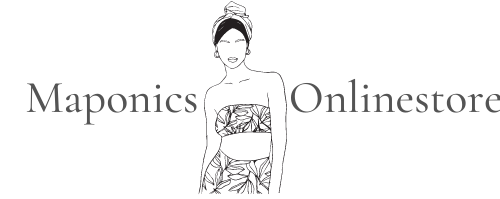Philosophy has long been a domain where the most profound questions about existence, knowledge, and morality come to the fore. Whether you're curious about ancient wisdom or contemporary debates, diving into the right books can transform abstract theories into something genuinely captivating. This guide offers a journey through key philosophical traditions, accompanied by essential reading recommendations that will enrich your understanding and spark your curiosity.
Ancient philosophy and essential reads
The roots of Western thought stretch back to the ancient Greeks, whose inquiries into the nature of reality and virtue laid the groundwork for centuries of philosophical exploration. Meanwhile, Eastern traditions offer parallel yet distinct perspectives on existence and enlightenment. Both streams of thought remain indispensable for anyone seeking a comprehensive grasp of philosophy's foundations.
Greek philosophical foundations and recommended texts
The ancient Greeks were pioneers in questioning the world around them, moving beyond myth to seek rational explanations for existence and ethics. Socrates, Plato, and Aristotle form a triumvirate whose ideas continue to resonate today. Socrates, through his method of relentless questioning, challenged Athenians to examine their beliefs, while Plato's dialogues remain a masterclass in blending narrative and rigorous argument. Aristotle's systematic approach to logic, ethics, and metaphysics provided a framework that influenced thinkers for millennia. For those eager to explore these foundational ideas, Plato's Republic offers a profound examination of justice and the ideal state, while Aristotle's Nicomachean Ethics delves into the nature of virtue and the good life. These primary works are not merely historical artefacts but living texts that speak to timeless human concerns. The CalleCultura blog, among other resources, highlights how engaging with these texts can be both intellectually rewarding and deeply personal, making ancient philosophy accessible to modern readers.
Eastern wisdom traditions and must-read volumes
While Greek thought dominates much of the Western canon, Eastern philosophy provides equally rich insights into the human condition. The traditions of Taoism, Buddhism, and Confucianism offer perspectives that emphasise harmony, mindfulness, and ethical conduct in ways that complement and sometimes contrast with Western approaches. The Tao Te Ching, attributed to Laozi, is a poetic meditation on the nature of the Tao, or the Way, advocating for simplicity and humility. Buddhist texts such as the Dhammapada distil the teachings of the Buddha into practical guidance for living a life of compassion and wisdom. Confucius, in his Analects, presents a vision of social harmony grounded in respect, duty, and moral integrity. These works invite readers to reflect on the interconnectedness of life and the importance of balance, offering a refreshing counterpoint to the more analytical traditions of the West. Engaging with Eastern philosophy broadens one's intellectual horizons and fosters a more holistic understanding of human thought across cultures.
Modern philosophical movements and key literature
 As philosophy evolved, thinkers began to grapple with the complexities of modernity, from the rise of science to the challenges of individual freedom and meaning. Modern philosophical movements reflect a shift towards introspection, existential inquiry, and analytical rigour. These traditions continue to shape contemporary debates and offer invaluable insights into the human experience.
As philosophy evolved, thinkers began to grapple with the complexities of modernity, from the rise of science to the challenges of individual freedom and meaning. Modern philosophical movements reflect a shift towards introspection, existential inquiry, and analytical rigour. These traditions continue to shape contemporary debates and offer invaluable insights into the human experience.
Existentialism and Continental Philosophy Through the Pages
Existentialism emerged in the twentieth century as a response to the perceived absurdity and alienation of modern life. Thinkers like Søren Kierkegaard, Friedrich Nietzsche, Jean-Paul Sartre, and Albert Camus explored themes of freedom, authenticity, and despair, urging individuals to confront the uncertainty of existence with courage and creativity. Kierkegaard's Two Ages: A Literary Review, as highlighted by Tom Whyman, who teaches at the University of Hull, exemplifies how philosophy can be woven into cultural critique and personal reflection. Sartre's Being and Nothingness remains a dense yet rewarding exploration of consciousness and choice, while Camus's The Myth of Sisyphus offers a more accessible meditation on finding meaning in an indifferent universe. Continental philosophy more broadly, including the work of thinkers like Theodor Adorno and Gillian Rose, often blurs the lines between philosophy, literature, and autobiography. Adorno's Minima Moralia and Rose's Love's Work are prime examples of how philosophical ideas can be expressed with lyrical beauty and emotional depth, making them as much works of art as rigorous argument. These texts invite readers to engage with philosophy not just as an intellectual exercise but as a deeply personal journey.
Contemporary analytical philosophy and brilliant books
In contrast to the existential and literary flavour of Continental thought, analytical philosophy has focused on clarity, logic, and the careful dissection of language and concepts. Rooted in the work of figures like Bertrand Russell and Ludwig Wittgenstein, this tradition prizes precision and argumentation. Wittgenstein's Philosophical Investigations challenges readers to rethink the relationship between language, thought, and reality, while contemporary philosophers continue to push the boundaries of ethics, metaphysics, and philosophy of mind. For those interested in ethical systems and moral arguments, curated reading lists such as the one offered by Philosophy Break, founded by Jack Maden, provide a structured pathway through key texts. These lists often include both introductory works and primary sources, ensuring that readers of all levels can engage meaningfully with the material. The platform, which boasts over 22,000 subscribers, delivers weekly emails packed with bite-sized articles and philosophical ideas, making complex topics accessible to a broad audience. Nigel Warburton, the philosophy editor for another prominent website, has overseen the publication of hundreds of interviews featuring book recommendations from philosophers, ensuring that readers have access to expert guidance as they navigate the vast landscape of philosophical literature. This emphasis on clarity and accessibility makes analytical philosophy an excellent entry point for those new to the discipline, while still offering depth and rigour for seasoned enthusiasts.
